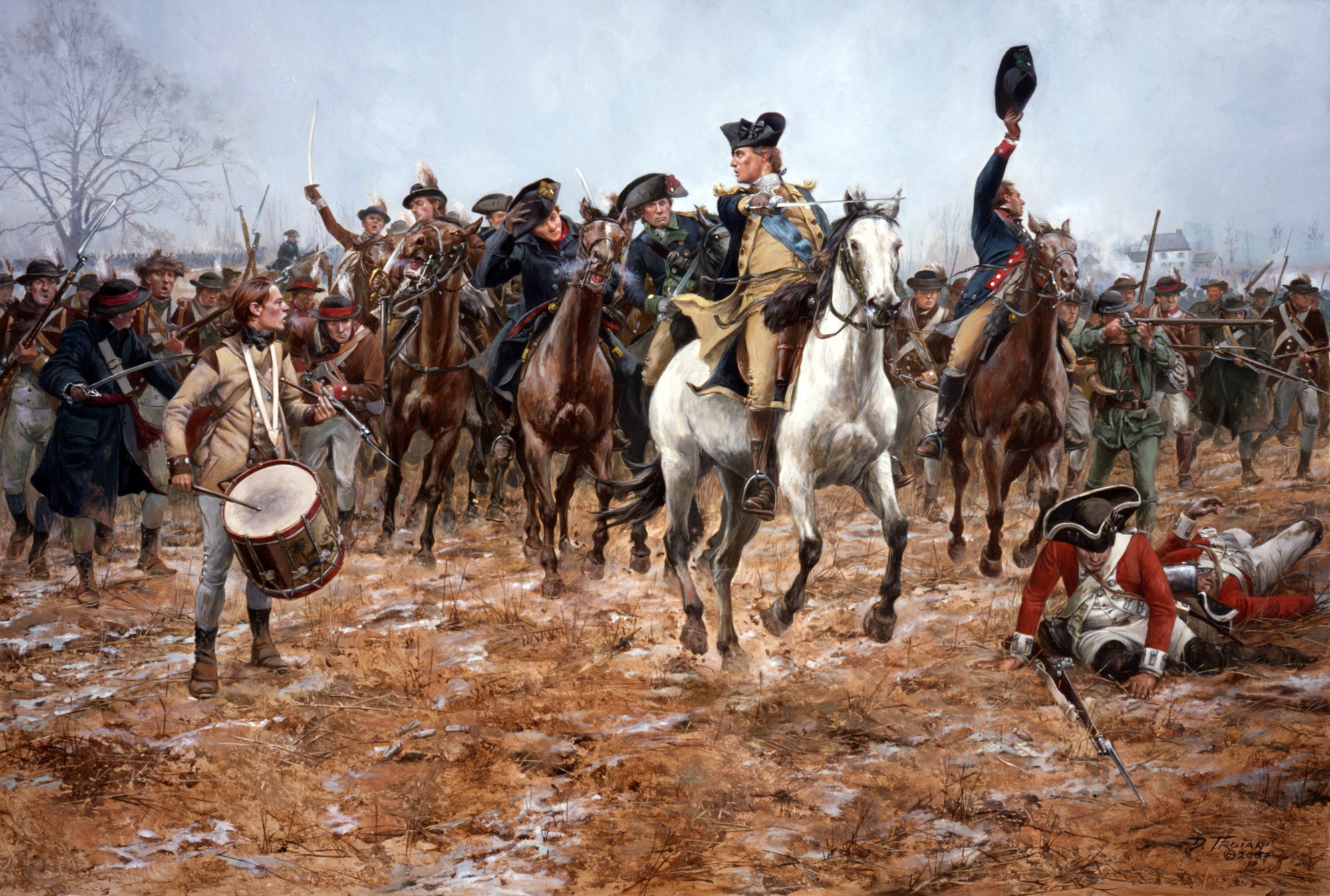
The Battle of Princeton
The title is a quote by King George III referring to George Washington’s intention to resign the army at the conclusion of the war — rather than seizing power for himself.
Washington was born this day two-hundred-eighty-five years ago. Ron Chernow summarizes his duty as commander of the Continental Army in the following passage from Washington: A Life :
Seldom in history has a general been handicapped by such constantly crippling conditions. There was scarcely a time during the war when Washington didn’t grapple with a crisis that threatened to disband the army and abort the Revolution. The extraordinary, wearisome, nerve-wracking frustration he put up with for nearly nine years is hard to express. He repeatedly had to exhort Congress and the thirteen states to remedy desperate shortages of men, shoes, shirts, blankets, and gunpowder. This meant dealing with selfish, apathetic states and bureaucratic incompetence in Congress. He labored under a terrible strain that would have destroyed a lesser man. Ennobled by adversity and leading by example, he had been dismayed and depressed, but never defeated. The cheerless atmosphere at Valley Forge was much more the rule than the exception during the war. Few people with any choice in the matter would have persisted in this impossible, self-sacrificing situation for so long. Washington’s job as commander in chief was as much a political as a military task, and he performed it brilliantly, functioning as de facto president of the country. In defining the culture of the Continental Army, he had helped to mold the very character of the country, preventing the Revolution from taking a bloodthirsty or despotic turn [as the French Revolution quickly did]. In the end, he had managed to foil the best professional generals that a chastened Great Britain could throw at him. As Benjamin Franklin told an English friend after the war, “An American planter was chosen by us to command our troops and continued during the whole war. This man sent home to you, one after another, five of your best generals, baffled, their heads bare of laurels, disgraced even in the opinion of their employers.”
Its hard for modern Americans to understand or fully appreciate the depth of his contribution and meaning to this country’s origins. During his time, he was basically worshiped and beloved by all the citizenry. And now his name covers our land for all time, including that of the state where I was born. I’ve always been proud of my home state, and nowadays, I am even more so.

